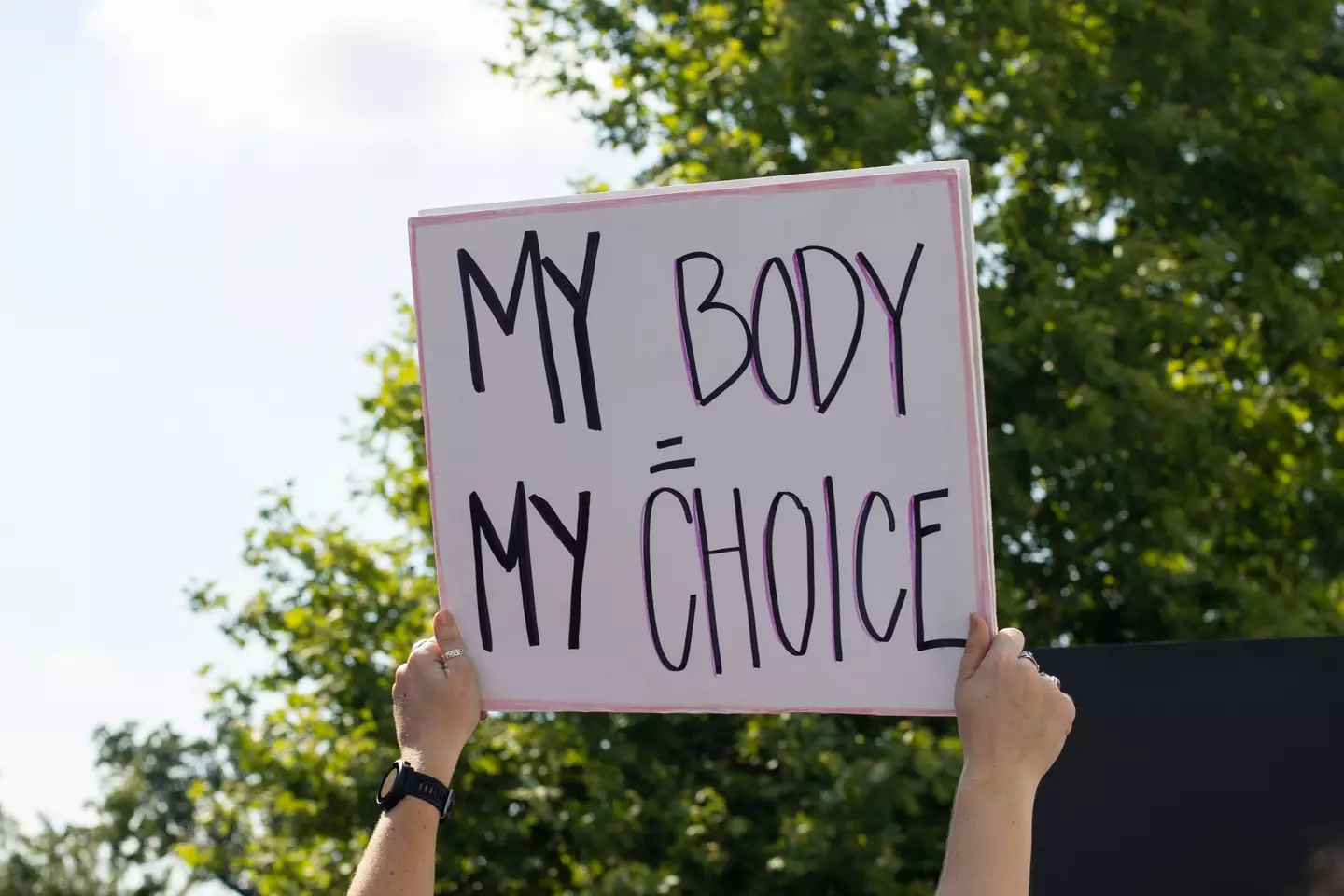
The pregnant woman who was declared brain dead, yet still forced to be kept alive due to an alarming US abortion law, has now had her baby delivered by doctors.
Last week (13 June), 31-year-old mum and nurse Adriana Smith, who hails from Atlanta, Georgia, had her son, named Chance, delivered by doctors prematurely via C-section, and he is now being kept in the neonatal intensive care unit after weighing just 1lb 13oz (0.8kg).
"He's expected to be OK. He's just fighting. We just want prayers for him," Smith's mother April Newkirk told local news station 11Alive, adding that her daughter would be taken off life support this week.
"It's hard to process," she continued. "I'm her mother. I shouldn't be burying my daughter. My daughter should be burying me."
Advert

What happened to Adriana Smith?
Smith first started experiencing headaches earlier this year in February - a time at which she was already nine weeks pregnant.
She then sought medical advice due to her symptoms and was reportedly sent away with medication.
However, just the following morning, Smith's boyfriend reported hearing her making gurgling noises and gasping for air, prompting him to rush her to hospital where a CT scan revealed she had multiple blood clots in her brain.
In a tragic turn of events, it was unfortunately too late to save Adriana's life, and doctors at the hospital declared her brain dead.
She has since been kept alive on a ventilator for three whole months, meaning she has been unable to pass away peacefully.
Why was Adriana Smith kept on life support despite being brain dead?

Georgia's extremely controversial law dubbed the 'heartbeat law' prohibits the termination of any pregnancy after six weeks gestation following the 2022 overturn of Roe v. Wade.
The legislation in question declares that no abortion can be carried out if there is a 'detectable human heartbeat' except in the event of a 'medical emergency or medically futile pregnancy'.
A termination can only be performed 'to save the pregnant person's life', to 'preserve' the woman's 'physical health' and 'if the foetus is not expected to survive the pregnancy'.
Smith's case has since revived interest in, and concern over, something known as the 'fetal personhood' law.
What is the 'fetal personhood' law?
Fetal personhood laws are statutes or constitutional amendments that define a fetus, at times from the moment of conception, as a legal person with rights equal to or similar to those of a born human being.
Such laws seek to grant legal recognition and protection to fetuses, often as part of efforts to restrict or ban abortion, and sometimes to influence other areas like wrongful death lawsuits, criminal prosecutions, or inheritance rights.
How does the 'fetal personhood' law work?

In legally declaring a fetus to be a 'person', these laws can make abortion legally equivalent to homicide or manslaughter, depending on how they’re enforced.
US states, including Alabama and Georgia, have passed laws or constitutional amendments explicitly recognising fetal personhood.
Meanwhile, other states have variations through criminal statutes such as fetal homicide laws for violent crimes against pregnant women.
Concerns regarding the 'fetal personhood' law
Such laws raise immense concern as they directly conflict with established abortion rights under Roe v. Wade, which was overturned in 2022 by the Dobbs v. Jackson Women's Health Organisation, and may criminalise women for pregnancy outcomes like miscarriages or stillbirths.
Additionally, these laws can affect IVF, contraception, and medical care for pregnant people, because legal rights of the fetus can come into conflict with the rights and health decisions of the pregnant individual.
For help, support and advice about abortion, contact the British Pregnancy Advisory Service on 03457 30 40 30, 7am to 6pm Monday to Friday, 8am to 4pm on Saturdays, and 9.30am to 2.30pm on Sundays.
Topics: Explained, Health, Parenting, Pregnancy, Real Life, True Life, US News, Women's Health